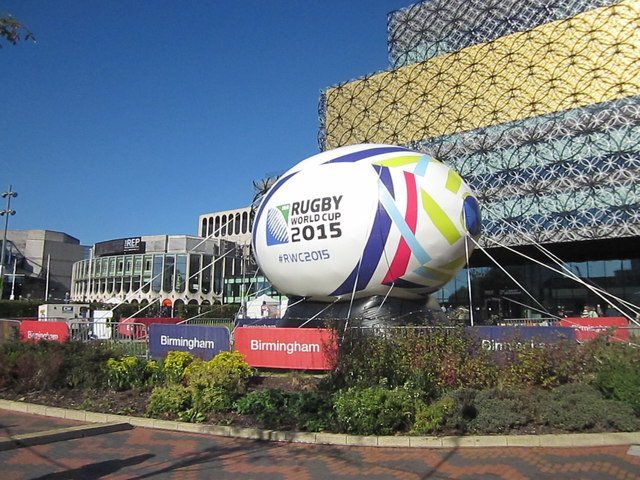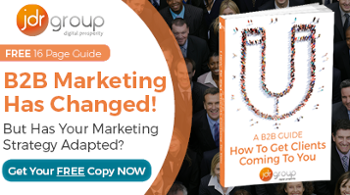Was The 2015 Rugby World Cup Marketing Effective? 6 Takeaways From The Campaign

The Rugby World Cup 2015 in England was an amazing marketing success, despite the early exit of the Home Nation team in the group stages of the competition. This article is going to look into the 6 lessons from the rugby world cup 2015 marketing which you can learn from and implement into your marketing plan, to create successful marketing campaigns.
Preparation is Vital
A major sporting event such as the Rugby World Cup takes years of planning and preparation to be a success. This applies to the marketing team and not just the organisers. Vital preparation including brand guidelines, content calendars and social media plans to name just a few, are key to achieving the goals and targets for the marketing team at the RWC. It all starts with the plan! By preparing the marketing plan, the RWC marketing team are able to react to situations in real time.
Take Away
Reacting in real-time is rarely done effectively without any preparation. It is a case of creating a lot of content which can cover most eventualities and making it rich and shareable. Working through all scenarios and likely outcomes, working on a tone of voice and imagery is very important too. The outcome is strong brand guidelines, content calendars and social media plans that can be added to a marketing plan.
 Understand your audience – Keep Your Ear to the Ground
Understand your audience – Keep Your Ear to the Ground
The England Rugby World Cup 2015 marketing team fully understood their target market and how to engage in conversation with them. What they excelled at was engaging with the non-rugby lovers around the world to encourage interest in this wonderful sport. The RWC 2015 marketing team created buyer persona's to really target their audience through all channels, including social media, email marketing and website content to spice up the appetite to watch rugby.
Take Away
It's incredibly important to reach that audience in the appropriate tone of voice and with appropriate content that appears natural and engaging, not forced. This requires market research and audience insight to create buyer persona's. Creating buyer persona's for your business can really improve the lead generation from marketing efforts and achieve great KPI's.
Leanne Mordue, director at JDR has written an article to explain buyer persona's in even more detail: Why Defining Your Buyer Persona is Fundamental to Your Inbound Marketing Campaign
Know Your Brand
The England Rugby World Cup 2015 brand was focused around 'Britain' and the traditions that we, as nation, uphold. The event marketing then followed this path with design, content and social media in reaching out to the buyer persona's created to maximise attendance and awareness of the event.
Take Away
It is all very well and good knowing your audience but if this is going against a brand's values or taking a campaign in a completely different direction than was planned, then the content can be very ineffective. It can sometimes be difficult, but finding a balance between the two is important and a real skill. All stakeholders need to be aligned on the creative strategy and direction.
 The Right Content at the Right Time
The Right Content at the Right Time
The content creation for the RWC 2015 was amazing and what you would fully expect from a marketing campaign with millions of pounds as a marketing budget. What they really excelled at was delivering that content at the perfect time to ensure maximum exposure and interest in the event.
Take Away
Your content doesn't always need to be the most original or different to that which has gone before, so long as it is eye-catching (use rich imagery), or witty and shareable it will get good engagement. Look historically at what has worked and what hasn't within the industry and competitive landscape. Creating a content calendar can really help you and your team meet your content goals.
The team at JDR have put together some great blog posts on content creation. Click the link to read more: Content Creation Blogs
Think On Your Feet
Having a plan is important, and vital in real-time content, but if the unexpected happens which you haven't planned for, then always try and make the most of it.
The early exit from the tournament for the home team England, really sent shock waves through the RWC 2015 marketing team and organisers. What the marketing team managed to do very successfully was to focus the marketing strategy on the entire tournament and the 'British' brand.
Take Away
Spontaneity is just as important in real-time content as the planning. And all that preparation and brainstorming will aid this creativity - ideas that were disregarded at the time, might actually resurface given the situation. Plus it’s more likely to be on brand and on message, because of all the planning.
Automated Marketing
The RWC 2015 marketing strategy without a doubt included marketing automation in a major role. The key to the success of that process was the fact that the target market didn't really know marketing automation was taking place. Using Automation software also gave the RWC marketing team the ability to measure KPI's in real time, react and improve automation stages and marketing messages in emails, social media and website content in real time, and ensure the message was being sent to millions of people with just a few clicks on a piece of software.
Take Away
Marketing automation lets you set up campaigns on many different channels and technologies that automatically respond to the user, no matter what stage of the buying journey, what time of day or night and at different stages of the event, all before a point has been scored. Using automation technology such as Hubspot enables you to automate:
- Landing Pages
- Email marketing
- Smart Calls to Action
- Website Content
To find out even more about marketing automation, read this article: Make Customers Come To You: Marketing Automation Explained


